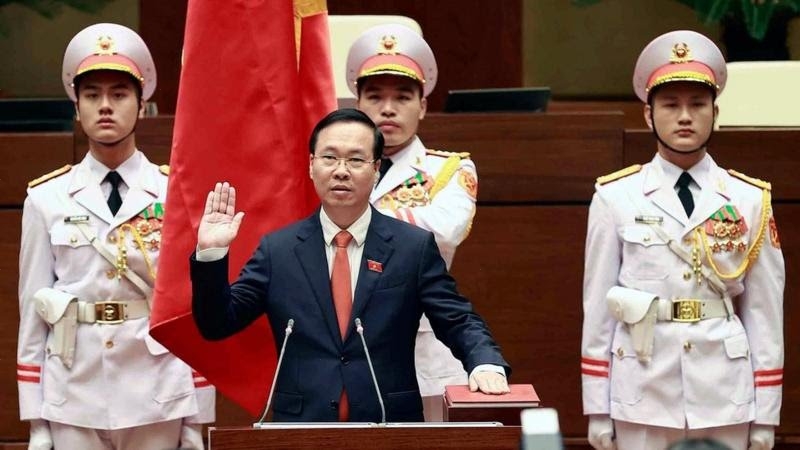In a stunning turn of events, Vietnam’s political landscape faces upheaval as President Vo Van Thuong steps down from his position after just one year in office. The resignation comes amidst swirling allegations of corruption that have rocked the nation’s leadership.
President Thuong’s departure follows a pattern of leadership changes within the ruling Communist Party, further underscoring the deep-seated challenges posed by endemic graft in the country’s rapidly expanding economy.
Heralded as a promising and youthful leader upon his appointment last year, President Thuong’s close ties to powerful figures within the party, including General Secretary Nguyen Phu Trong, initially bolstered hopes for effective governance and anti-corruption measures. However, his sudden resignation marks yet another blow to Vietnam’s efforts to combat corruption at the highest levels.
The Communist Party, which holds a tight grip on power, faces mounting pressure to address the pervasive corruption that has eroded public trust and investor confidence. With President Thuong’s departure, the party must navigate a delicate balance of restoring faith in governance while maintaining stability in the face of internal strife.
The timing of President Thuong’s resignation coincides with the arrest of a former provincial leader on corruption charges, further highlighting the breadth of the anti-corruption crackdown sweeping through Vietnam’s political and business circles.
As the nation grapples with the fallout from these scandals, the implications for foreign investment remain uncertain. The integrity of Vietnam’s leadership and its commitment to combating corruption will undoubtedly shape perceptions among investors, potentially influencing the country’s economic trajectory in the years to come.
Amidst this turmoil, Vietnam stands at a critical crossroads, where decisive action against corruption will not only define the legacy of its leaders but also determine the course of its future prosperity.


